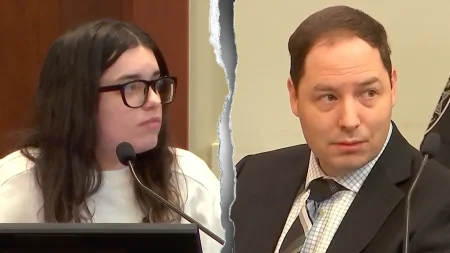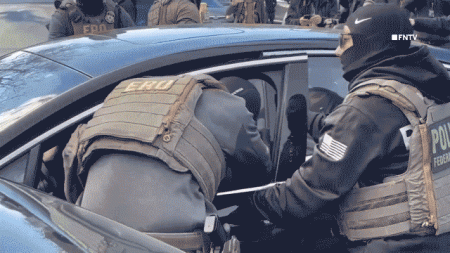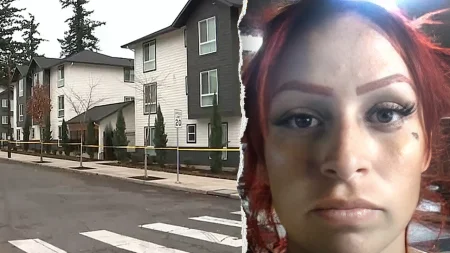Investigators Probe Possible Links Between Train Stabbing and Three Prior Knife Incidents
London Police Expand Investigation Following Weekend Rail Attack
In the aftermath of Saturday’s harrowing knife attack on a London-bound commuter train, Metropolitan Police investigators have broadened their inquiry to examine potential connections between the primary suspect and three previously unsolved knife-related incidents in the greater London area. The development marks a significant expansion of what began as an isolated violent episode into what could potentially be a pattern of concerning behavior that went undetected across multiple jurisdictions.
Senior Detective Chief Inspector Eleanor Marsden confirmed to reporters outside Scotland Yard on Monday that specialized forensic teams are meticulously reviewing evidence from knife-related incidents reported in North London and surrounding areas over the past eight months. “While we cannot disclose specific details that might compromise ongoing investigative work, I can confirm that we are thoroughly examining similarities in methodology, witness descriptions, and forensic evidence that may link Saturday’s suspect to other incidents,” Marsden stated. The Metropolitan Police have established a dedicated task force comprising experienced detectives from both the Violent Crime Unit and Counter Terrorism Command, though authorities emphasized that terrorism has not been established as a motive at this stage.
Saturday’s incident unfolded during the morning rush hour when a man allegedly brandished a knife and attacked fellow passengers aboard the 7:45 AM Southeastern Railways service from Sevenoaks to London Charing Cross. According to witness accounts, the attack appeared random and unprovoked, leaving three passengers with non-life-threatening injuries before an off-duty police officer and two military personnel subdued the assailant. Transport security expert Professor Julian Hammond of King’s College London noted that the incident highlights persistent challenges in securing open transit systems. “Railway networks present unique security challenges because they’re designed for accessibility and rapid movement of people,” Hammond explained in an interview. “While CCTV coverage has improved dramatically over the past decade, preventing someone from boarding with a concealed weapon remains extraordinarily difficult without implementing airport-style security measures, which would effectively cripple the transit system’s functionality.”
Pattern Recognition Becomes Central to Expanded Investigation
Authorities are now scrutinizing three unsolved incidents: a knife assault near Finsbury Park in February, a threatening encounter at a Camden shopping center in April where a man brandished a blade but fled before injuring anyone, and a stabbing outside a nightclub in Islington in late June. Law enforcement sources speaking on condition of anonymity revealed that certain behavioral and tactical similarities have prompted the expanded investigation, including the apparently random selection of victims and the distinctive manner in which the weapon was wielded. Forensic psychologist Dr. Amara Okonkwo, who has consulted on similar cases but is not involved in this investigation, explained that establishing connections between seemingly disparate criminal acts often relies on identifying subtle behavioral signatures. “Perpetrators of multiple violent incidents frequently develop identifiable patterns, whether in victim selection, approach methods, weapon handling, or post-incident behavior,” Dr. Okonkwo said. “These patterns can be as distinctive as fingerprints when analyzed properly, even when the individual is attempting to vary their methodology.”
The suspect, whose identity remains under court-ordered publication restriction due to ongoing legal proceedings, was remanded in custody following a preliminary hearing at Westminster Magistrates’ Court on Sunday. Court documents reveal the 34-year-old male faces multiple charges, including three counts of attempted murder, possession of an offensive weapon, and causing public disturbance. His legal representation indicated he would not enter a plea at this stage. The Crown Prosecution Service has assigned Senior Prosecutor Margaret Whitehall to the case, signaling the seriousness with which authorities are treating the incident. “The evidence gathering phase remains active and extensive,” Whitehall noted in a brief statement outside the courthouse. “We anticipate that additional forensic results and witness statements will substantially strengthen the prosecution’s position in the coming weeks.”
Technology and Community Intelligence Drive Modern Investigation Methods
Modern investigative techniques have transformed how police connect seemingly isolated incidents, with digital forensics playing an increasingly critical role. Detective Superintendent Richard Barnes, who heads the Metropolitan Police’s Digital Forensics Unit but is not directly involved in this case, explained that cellphone tower data, transit system CCTV integration, and automated facial recognition capabilities have revolutionized pattern-based investigations. “Today’s investigative environment bears little resemblance to what we worked with even ten years ago,” Barnes noted during a recent law enforcement technology conference. “The integration of thousands of CCTV cameras across London’s transport network, combined with advanced analytics software capable of identifying movement patterns, means we can retroactively trace an individual’s movements across the city over extended periods.” Privacy advocates have expressed concerns about such capabilities, but law enforcement officials maintain that strict procedural safeguards prevent misuse of these powerful tools.
Community intelligence has also proved invaluable following Saturday’s widely reported incident. The Metropolitan Police confirmed they received over 240 calls to their dedicated hotline within 48 hours of the attack, with several providing potentially actionable information about the suspect and similar incidents that may not have been previously reported or connected. Assistant Commissioner Helen Weatherstone praised the public response: “The community’s engagement demonstrates Londoners’ resilience and determination to maintain the safety of our city. Several of these calls have provided valuable investigative leads regarding potentially related incidents.” Transport for London has temporarily increased security personnel across the network while the investigation continues, with particular attention to the affected rail corridor. TfL Security Director Martin Landsworth emphasized that the enhanced presence aims to reassure the public rather than respond to any specific ongoing threat. “We want commuters to feel confident in the safety of their daily journeys,” Landsworth said. “These additional measures complement our existing security infrastructure without disrupting the efficiency of service that Londoners depend on.”
Public Safety and Mental Health Considerations Emerge as Broader Concerns
The investigation has reignited discussions about public safety and mental health resources in the capital. London Mayor Simone Parker convened an emergency meeting of the city’s Public Safety Committee on Sunday evening, where officials reviewed both immediate response protocols and longer-term preventative strategies. “While we must address the immediate concerns this incident raises, we cannot ignore the underlying issues of mental health support, early intervention, and community resources that might prevent such tragic events,” Parker said following the three-hour session. The committee announced a comprehensive review of knife crime prevention strategies and mental health crisis response protocols across London’s boroughs, acknowledging that a coordinated approach across healthcare, law enforcement, and social services remains challenging despite years of effort.
Mental health professionals have cautioned against speculation regarding the suspect’s psychological state while emphasizing the importance of accessible crisis services. Dr. Rebecca Thornley of the Royal College of Psychiatrists noted that most people experiencing mental health difficulties never become violent, while emphasizing that early intervention remains critical. “The discussion should focus on building robust community mental health services that provide timely support before crisis points are reached,” Thornley said during a radio interview on Monday. “We must be careful not to stigmatize mental health challenges while simultaneously acknowledging that improved services benefit everyone in our community.” As the investigation continues, Londoners have demonstrated their characteristic resilience. Rail services resumed normal operation by Sunday morning, with passenger numbers showing no significant decline—a pattern consistent with the city’s response to previous incidents on its transportation network. Police have promised to provide regular updates as the investigation progresses, with the next official briefing scheduled for Wednesday morning at New Scotland Yard.









